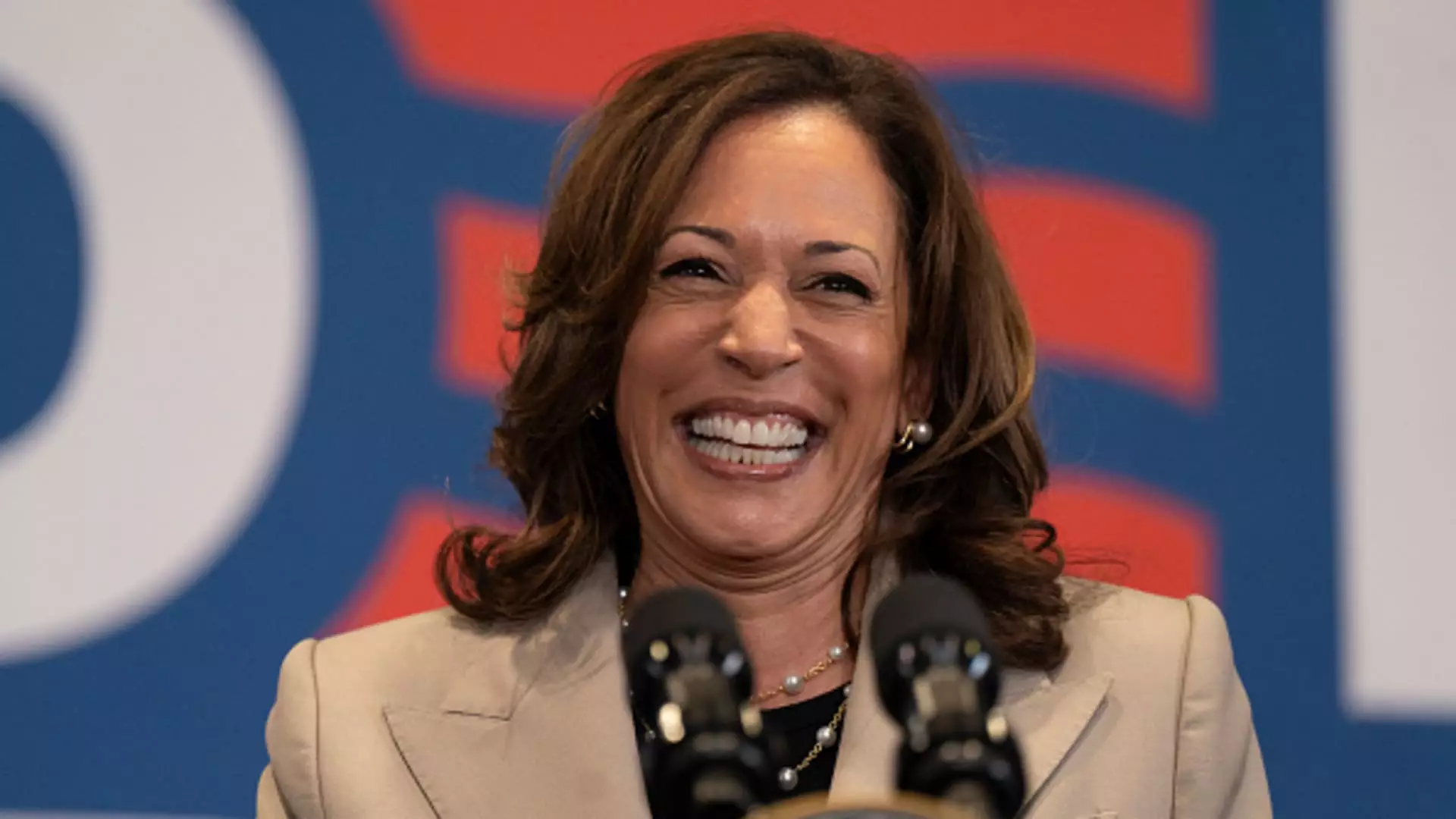As President Joe Biden exits the election scene, all eyes are on Vice President Kamala Harris, who is now the frontrunner for the Democratic nomination. While Harris has not yet provided a detailed outline of her economic agenda, experts predict that her tax policy proposals may mirror Biden’s stance on higher taxes for the wealthy and corporations. Although Harris had previously shared many priorities with Biden before suspending her campaign in 2019, it remains to be seen how her approach will differ moving forward.
According to Garrett Watson, a senior policy analyst and modeling manager at the Tax Foundation, it is likely that Harris will be “largely on board” with Biden’s proposals, especially in terms of the broader economic goals. If Harris secures the Democratic nomination and utilizes the existing infrastructure and staff from the Biden campaign, it might limit her ability to deviate significantly from Biden’s vision.
With a plethora of tax breaks set to expire after 2025, Harris will need to focus on addressing pressing issues related to tax policy and the federal budget deficit. The Tax Cuts and Jobs Act (TCJA) enacted by former President Donald Trump in 2017 significantly impacted federal income brackets, the standard deduction, and the child tax credit. While Trump aims to extend all expiring TCJA provisions, including deeper corporate tax cuts, Biden’s plan involves renewing tax breaks exclusively for those earning less than $400,000.
One of the major questions surrounding Harris’s tax policy is whether she will uphold Biden’s promise not to increase taxes for individuals earning below $400,000. Andrew Lautz, associate director for the Bipartisan Policy Center’s economic policy program, emphasizes the importance of this pledge in shaping future Democratic tax proposals and negotiations related to the TCJA. During her 2020 campaign, Harris proposed the LIFT the Middle Class Act, which aimed to provide a refundable tax credit of up to $3,000 for single filers and $6,000 for married couples filing jointly. However, there has been a greater emphasis on expanding the child tax credit among Biden and other Democrats, with recent legislation passing in the House.
Focus on Families
Harris’s potential tax policy agenda could prioritize supporting families, as evidenced by her previous statements on providing tax relief through the child tax credit. While the previous administration favored tax cuts for the wealthy, Harris advocates for delivering financial assistance to families through initiatives like the child tax credit expansion. The American Rescue Plan, which increased the maximum tax break per child to $3,000 or $3,600 and introduced monthly payments to families, played a critical role in reducing child poverty rates to a historic low in 2021.
Impact of Pandemic Relief
However, following the expiration of pandemic relief measures, child poverty rates more than doubled in 2022, underscoring the significance of targeted government support. Harris’s proposed tax policies will need to navigate the ongoing challenges posed by economic instability and social inequalities exacerbated by the global health crisis. As the nation grapples with these issues, it will be crucial for Harris to articulate a comprehensive tax policy agenda that addresses the diverse needs of American families and ensures equitable economic recovery.
Vice President Kamala Harris’s tax policy agenda holds immense importance in shaping the future economic landscape of the United States. By building upon Biden’s proposals and focusing on initiatives to support working families, Harris has the opportunity to enact meaningful change that addresses pressing issues related to income inequality, tax reform, and economic recovery. As the political landscape continues to evolve, Harris’s stance on tax policy will be closely scrutinized, offering valuable insights into her vision for a more equitable and prosperous future for all Americans.

